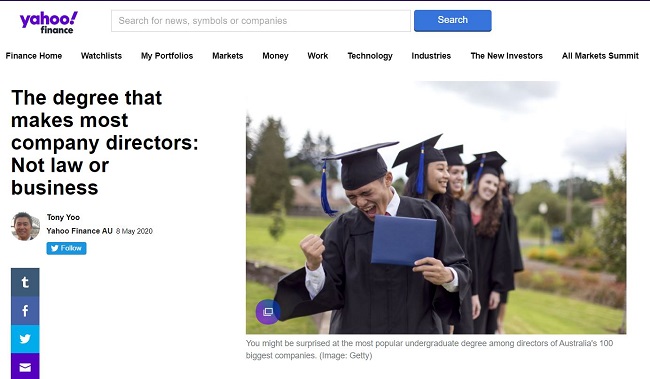by Amelia Stubley
October 17, 2019
Reputation Management
People want to see their corporate leaders are real people too.
By communicating your values and opinions, you can prove to the wider community you are reliable and trustworthy. We are seeing more and more examples of relatable leaders driving change and, in turn, driving success. This blog post delves into why being relatable is key, gives examples of how to show your authentic self AND win over clients, and provides some suggestions on doing it properly.
So, what exactly do you mean by being ‘relatable’?
The Google definition of ‘relatable’ is as simple as “enabling a person to feel that they can relate to someone or something.” But is it really that simple? The answer is twofold: yes, inasmuch as by showing the public the real ‘you’, you can gain some common ground with them and, hopefully, they will see you as more trustworthy. BUT – on the flip side – you may share the wrong things with the wrong audiences, and this can have an adverse effect on your reputation.
The New Yorker published an article this year titled ‘Ellen DeGeneres and the Trap of Trying to be “Relatable”’, which explores the notion of relatableness (yes, that’s actually a real word) and how, sometimes, maintaining this Reputation Badge of Honour can be difficult. DeGeneres’s new Netflix special, ironically titled ‘Relatable’, commences with her recounting a chat she had with a friend about returning to stand-up comedy. “Your life has changed so much,” he told her. “I know, but I still think I’m relatable,” DeGeneres replied. “Anyway, just then, two of my butlers stepped into the library and announced that my breakfast was ready. And I said, ‘We’ll continue this conversation another time.’”
Does this make her less relatable? Yes – I can’t say I know many people with butlers bringing them brekky. Although her honesty and ability to mock herself does redeem it slightly, it illustrates how being relatable is fluid – you’re only as relevant as society perceives you. In this sense, Ellen’s ability to reconnect with her audience and capitalise on other ways to relate to them, such as being a wife or vegan, will dictate her future success.
How to be relatable
There are a number of noteworthy public figures that have relatableness down to a fine art. Atlassian co-founder and CEO Mike Cannon-Brookes has rapidly become a household name, mainly due to the unprecedented success of Atlassian, but also due to his relatable persona.
Cannon-Brookes is a parent to four young children. His signature outfit includes a white t-shirt, jeans, sneakers and a cap. He may be one of the richest men in Australia; however, his down-to-earth image portrays him as a trustworthy mate – someone you would have a beer with and discuss the world’s problems.
The Apollo Communications Australian Top 50 CEO Report found ‘ethical behaviour and trustworthiness’ ranks at the top of the most sought-after attributes in an Australian CEO, both of which Cannon-Brookes embodies through his openness to discuss his insecurities and beliefs.
Authenticity is a word thrown around a lot these days. How does one measure if someone or something is fundamentally ‘real’ or ‘true’? Cannon-Brookes’ Ted Talk and associated blog post successfully achieves this through exploring the notion of “How to use your imposter syndrome as an asset”. This honest, slightly embarrassing confession of feeling like an ‘imposter’ in his professional life reveals a side to Cannon-Brookes that many of us can relate to, through mediums that allow him to personally relate to his audiences.
“Have you ever felt way, way out of your depth and kind of guessed-slash-bullshitted your way through because there was no other way out? Petrified that at any moment you’ll be exposed for the fraud you are? Even though everyone around (oddly enough) you acts for all the world like you do indeed deserve to be there? That’s impostor syndrome.”
Cannon-Brookes’ authenticity is reinforced through his public advocacy of his personal beliefs and passions. In a recent interview with The Australian Financial Review, Senior Reporter Ben Potter spoke with Cannon-Brookes who discussed his poignant views of ‘clean energy’, such as wind and solar energy, and how he thinks “you’re crazy if you don’t think it’s [climate change] going to be a big issue”. His advocacy and openness of his views doesn’t stop there. He is vocal about his “world view” of constantly striving for change, explaining how large corporations must continuously adapt and evolve to remain relevant.
“The problem for a big business is your goal of delivering customer value and innovating and creating things switches to self-preservation once you reach a big enough stage and self-preservation is a dangerous thing, ironically, for a lot of other stakeholders,” he says.
It’s examples like these that place Cannon-Brookes apart from many other powerful business leaders. His transparency inspires everyday Australians to reflect upon their own values by asking themselves if this geeky software dad can build one of the world’s most successful tech businesses and drive climate change action simultaneously – why can’t they?

Top tips
It’s really not as hard as it sounds. Relating to people comes more easily to some than others but, at the end of the day, we are all human and all share similar experiences that connect us.
Social media is an invaluable platform in relating to your stakeholders. United States congresswoman Alexandria Oscasio-Cortez (or AOC, as she is affectionately known by her followers) is an example of someone who does this fantastically, keeping things “raw and honest”. As the youngest woman ever to serve in the United States Congress, she is already an inspiration to many young people; however, it is her use of social media platforms that allows her to truly connect.
You just have to follow AOC on Twitter or Instagram to see how she masterfully does this. From asking her Twitter followers where the best tacos in Austin are, to posting live Instagram ‘MyStories’ in her pyjamas where she answers the public’s questions, she really does set the bar for leaders worldwide.
In late 2019, AOC posted on Instagram about self-care. She explains how, by being transparent about the highs and lows of her political journey, she is trying to remove the infamous ‘fourth wall’ that surrounds politicians,
“I keep things raw and honest on here since I believe public servants do a disservice to our communities by pretending to be perfect… it makes things harder for others who aspire to run someday if they think they have to be superhuman before they even try.”
By breaking this ‘fourth wall’, AOC is actively reaching out to her followers and showing them that she relates to their aspirations, everyday struggles and the turbulent human journey in general.
If you’ve made it this far through my blog, I hope you’ve enjoyed it and maybe learnt a thing or two about being relatable and how it can boost your reputation. I chose leaders, such as Cannon-Brookes and AOC, who I find relatable and truly inspiring – but this is my personal opinion. I encourage all of you to think about you who look up to and aspire to be like and ponder what aspects of their characters resonate with you.
Then use this newfound inspo to connect to your audiences – whether this is through social media, media interviews, or otherwise – and show them interesting ways that you relate to them.
You can thank me later.

Find out more
If you want to have a chat about relatableness and how it can help enhance your reputation, please contact Amelia Stubley.
Stay up to date with more blog posts by the Apollo Communications team here.
NEWS AND MEDIA

Freedom is anchored to a free press
Yesterda...
Measure and manage your Corporate Reputation

Suite 94 | Jones Bay Wharf
26-32 Pirrama Road
Pyrmont NSW Australia 2009



